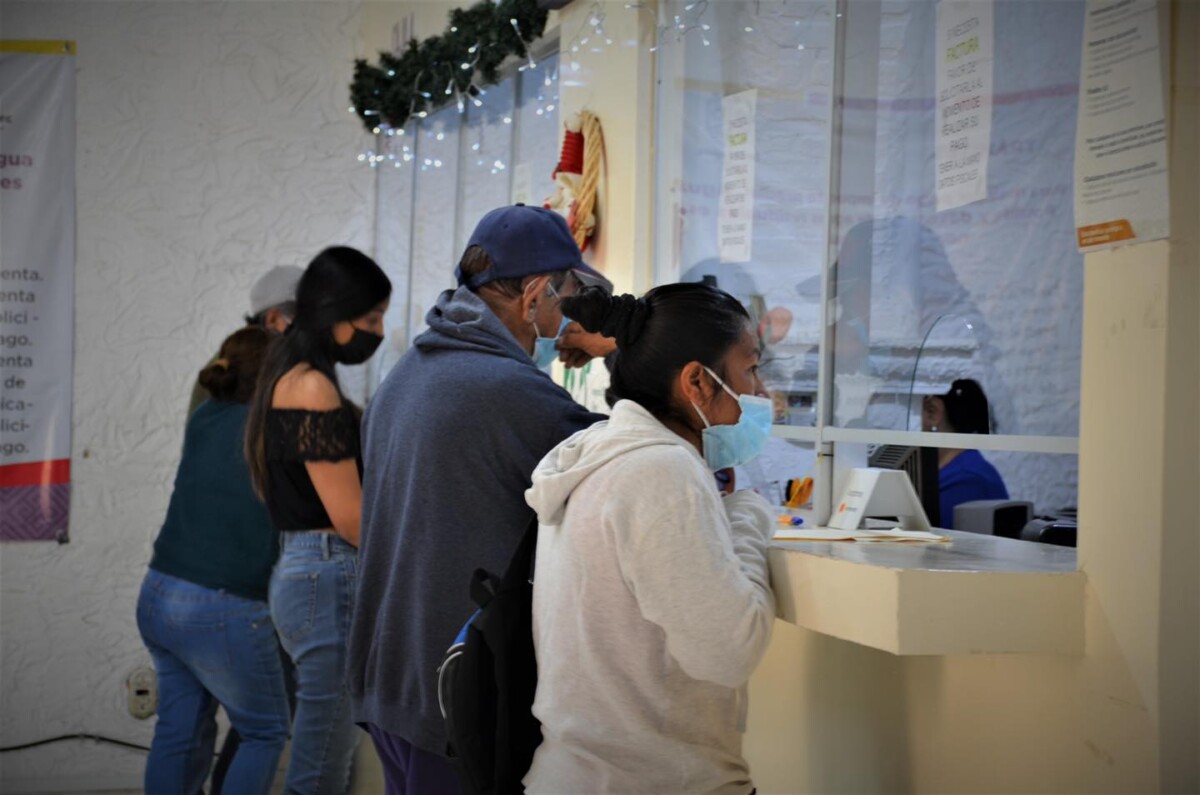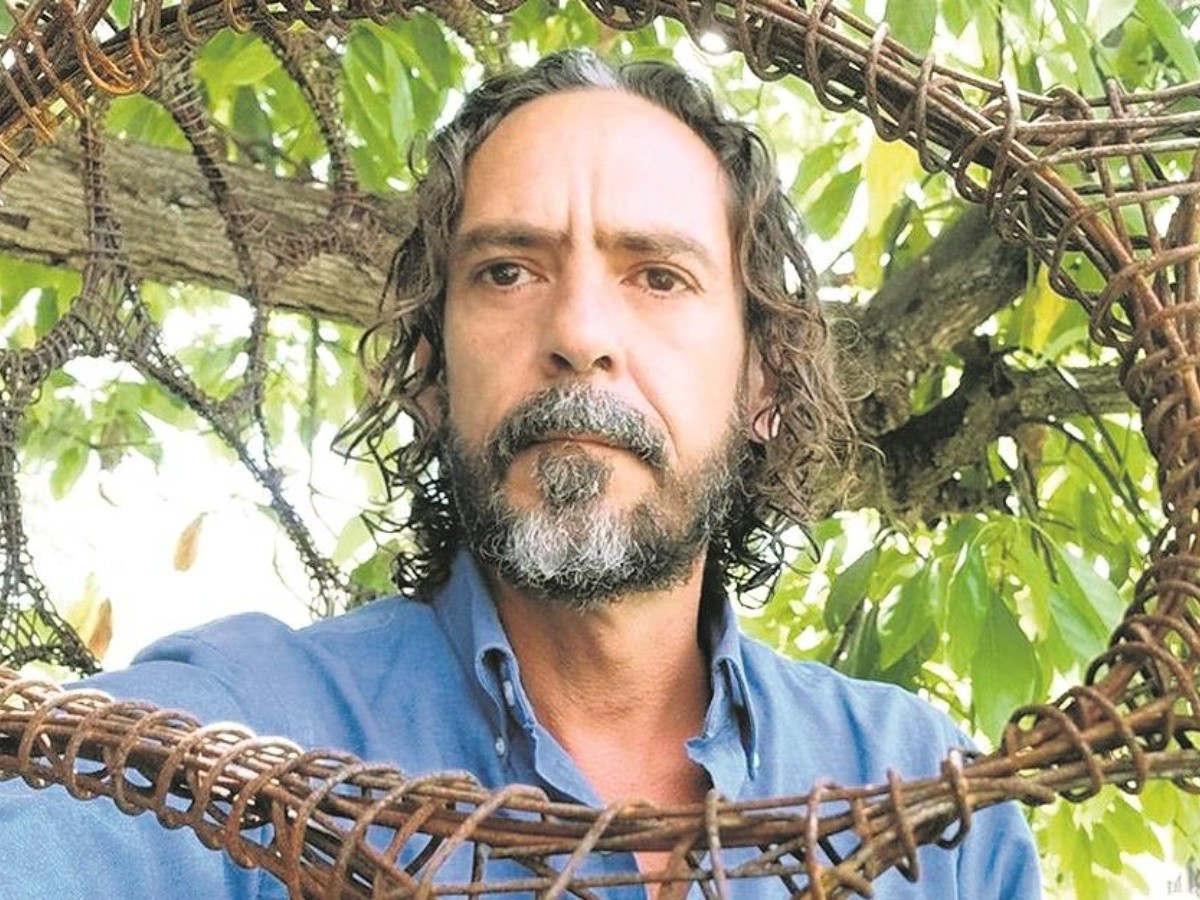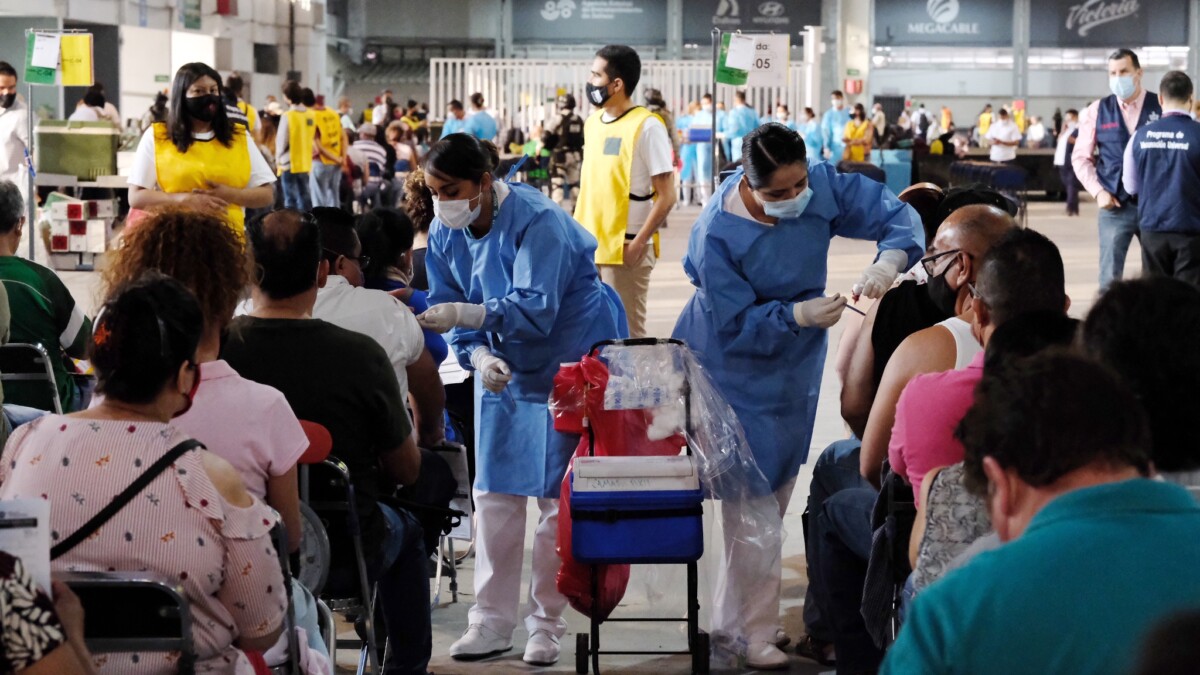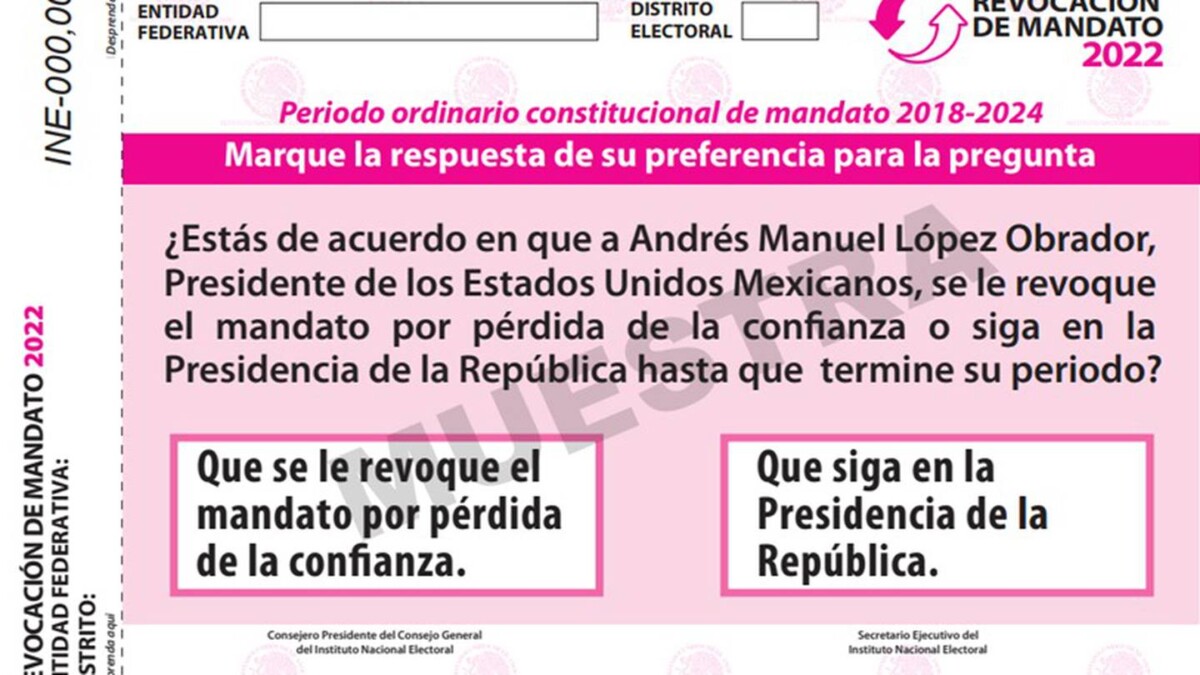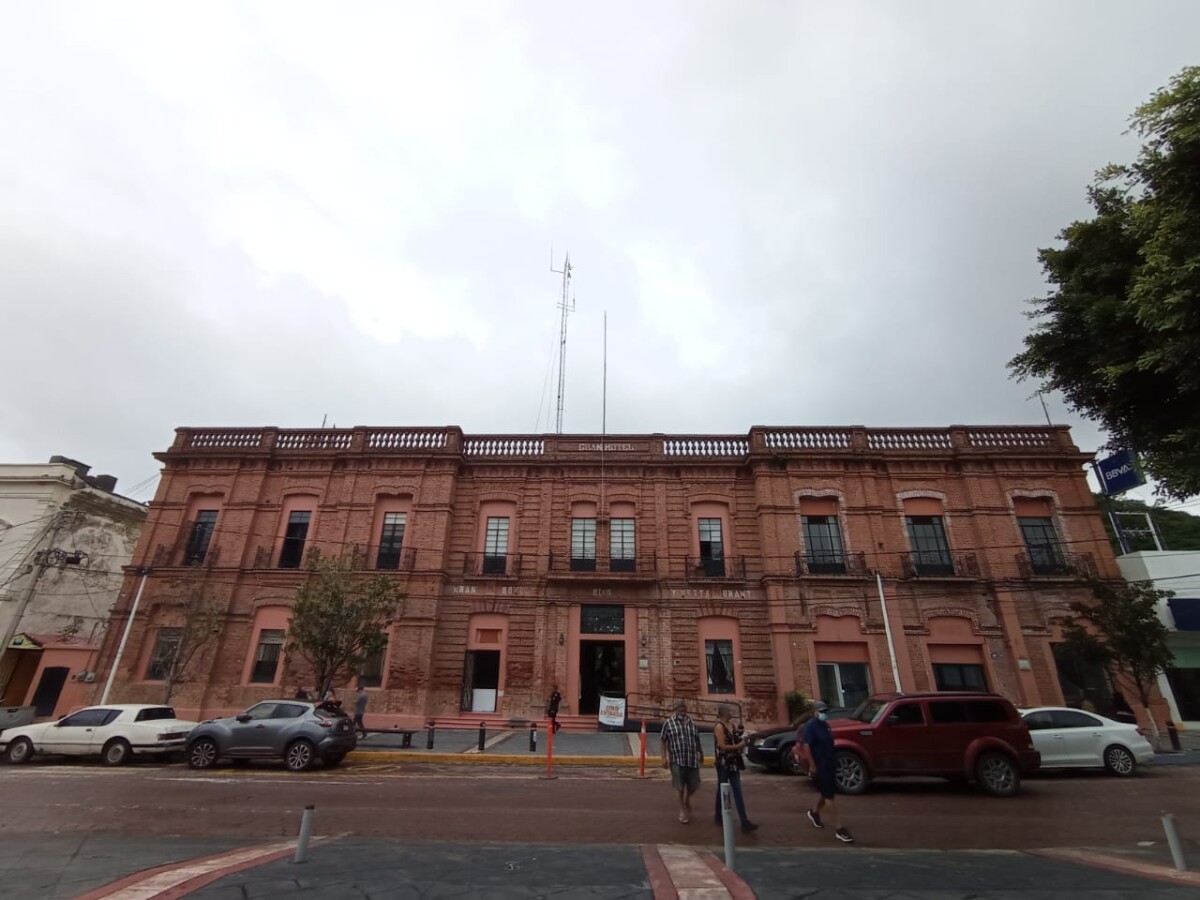Gobierno
Magical Towns in Jalisco will receive 15 million pesos this year
Some of the houses on Zaragoza Street still preserve the typical architecture of Ajijic and bright murals on their facades.
Sofía Medeles (Ajijic, Jalisco) – The 2022 Jalisco State Expenditure Budget allocates 15 million pesos for the nine Magical Towns of the state, ‘which would mean 1.666 million pesos for Ajijicif, as it was last year, the budget is split equally among Jalisco’s nine Pueblos Mágicos.
In 2021 Ajijic received 1.333 million pesos for its Pueblo Mágico budget, some of which was returned unused to the State. Part of the budget was slated for a festival that never took place due to the pandemic, some for a mural contest, some for an as yet unopened information booth on the boardwalk, and some for signage that has not been completed.
The 2022 Expenditure Budget of the Government of Jalisco has prioritized health, security, education and infrastructure but it has allocated 152 million pesos to tourism, of which 15 million are for the nine Magical Towns: Tapalpa, Mazamitla, Lagos de Moreno, Mascota, San Sebastián del Oeste, Talpa de Allende, Tequila, San Pedro Tlaquepaque and Ajijic.
To learn more details about the Pueblos Mágicos in our state, visit the website: https://secturjal.jalisco.gob.mx/nuestro-estado/pueblos-magicos.
Translated by Patrick O’Heffernan
Five percent tax increase for Jocotepec
City Hall bets on community outreach to improve tax collection. Photo: Courtesy.
Héctor Ruiz Mejía.- The municipality of Jocotepec approved a general increase of five percent in taxes for the fiscal year 2022, said Marcela Jiménez Góngora, director of the Treasury.
The new revenue law proposed by the Plenary of the Jocotepec City Council was approved by the Governor of Jalisco, Enrique Alfaro Ramírez, through the secretary of the H. Congress of the State, under decree number 28644/LXIII/21.
The Public Treasury of Jocotepec projects the estimated collection of 205,661,384 pesos during the fiscal year from January 1 to December 31, 2022.
Water service, like other services, will increase by five percent, except for «some users in very specific cases, who will have a higher percentage because there was some update in their accounts,» commented the interviewee.
In this case, the director suggested approaching the potable water directorate to specify the charges, since the intention is to encourage the community to bring current accounts.
However, in order to reach the collection goal, the Jocotepec City Hall has implemented new measures to generate an approach to the community and encourage people to pay their taxes on time.
A new online payment platform is available where a bot will display a menu with the property or water bill and will generate a reference to make the payment in OXXO, payment at cash registers, even via WhatsApp.
Also, the City Hall announced the new expanded hours to pay taxes that will include Saturdays from 9:00 am to 1:00 pm.
This after José Miguel Gómez López declared that the municipality was under a terrible administration of the collection issue, «there was chaos in the collection issue, such as water, many irregularities,» said the mayor.
While the new measures are expected to improve tax collection, the Treasury Director assured that they will wait until January 15 to have a comparison of how much the new measures helped the population to regularize and pay their taxes on time.
Translated by Kerry Watson
Chapala City Hall is remodeling its restrooms
The remodeling of the restrooms at Chapala City Hall is expected to be completed in the next few weeks.
Jazmín Stengel –Director of Social Communication Elizabeth Oropeza announced today that the ongoing remodeling of the restrooms at Chapala City Hall will cost approximately 70 thousand pesos and should be completed in a few weeks. She added that the facilities are being completely remodeled because they were left in very bad condition.
She said that the remodeling consisted of «gutting of the previous restrooms, unclogging and cleaning the drains, replacing drinking water pipes, tiling walls, installing new wall and floor tiles, as well as new bowls, urinals and sinks. »
In the next stage, the doors will be repainted, and the glass in the mirrors will be replaced, and new screens installed. «Only the screens are contracted out; the rest of the work is being performed by City Hall’s employees, » Oropeza pointed out.
The remodeling of the bathrooms in the Chapala City Hall does not require the supervision of the National Institute of Anthropology and History (INAH), because the building was constructed after 1900.The director of Municipal Patrimony, Antonio Velazco, said that «the law establishes that it (INAH ) protects paleontological, archeological, historical and artistic assets produced before 1900». Since the building was constructed in 1908 as the Antiguo Hotel Nido de Chapala, it is exempt.
Access to Lake Chapala still closed 100 days after the beginning of Alejandro Aguirre’s administration
Callejón Azucena, used as a private garage by the Lomelí family, according to neighbors in the area.
Jazmín Stengel (Chapala). A little more than 100 days into the 2021-2024 administration and despite the fact that it was a campaign promise of the new president of Chapala, Alejandro de Jesús Aguirre Curiel, the accesses to the Lake are still closed to the general public. No information has been given as to when they will be opened.
Laguna investigated the current situation of the accesses to the Lake from Hidalgo Avenue in the municipal capital. They were closed to the public in 2020 during the administration of Moisés Alejandro Anaya Aguilar (2018-2021) and have remained closed.
At the time, Moisés Anaya (who is now a councilman) declared, «if we remove the gates we could be involved in a criminal offense, therefore, we are investigating thoroughly so as not to incur criminal charges.” The investigation remained open.

Callejón Las Palomas, according to former president Moisés Anaya this place was sold to private individuals.
Before the end of his administration, Moisés Anaya argued that the failure to remove the gates that prevented the fishermen of Barrio de Lourdes from entering was for the safety of the neighbors who had previously suffered robberies.
The National Water Commission (CONAGUA) clarified in its visit on October 28, 2020 that the opening of the alleys with access to the Lake on Hidalgo Avenue is an action that is the responsibility of the Municipality of Chapala. The previous Director of Ecology and Sustainable Development, José Guadalupe Jaime Ibáñez was also informed that these alleys are not in a federal zone and the review work should be headed by the Municipal Government. To date, no action has been taken.
The first alley ‘Azucena’ is being used as a garage for a private house. The cyclone mesh gate is next to an entrance, observed Laguna. According to neighbors, the alley is restricted by the Lomelí family, «they decide who has access and who doesn’t,» even though it is a public space.

Callejón del Arroyo was closed by Villa Hamburgo.
The next privatized space ‘Callejón Las Palomas’ has an entrance marked with the number 41, a doorbell and a security video camera. According to the former president Moisés Anaya during his administration, the place was sold as private property.
A small alleyway identified by neighbors as ‘El arroyo’ was also closed off with cyclone mesh and barbed wire, about ten meters from the sidewalk, just behind the bushes that cover their easy view. «This alley was taken over by Villa Hamburgo which is located next to it,» neighbors assured.
The owners of Villa Marijo, marked 266 Hidalgo Avenue, took possession of the unnamed alley next to their property, installing a blue metal fence that prevents passage to the lake. Initially the fence was exposed to view, now it is covered by a handful of «decorative» trees in pots.

Villa Marijo’s invasion of the alley next to the property.
Finally, the University of Guadalajara, with the Villa Montecarlo hotel, which for many years has had an alley on its property, joins this list of landowners blocking the way to the lake.
«It is very bad that they are blocked, because these alleys have been there for years and years. They give people access to the lake, the fishermen, tourists and others. The authorities do agree that the inhabitants of these houses block these streets», said a neighbor.
There are other neighbors who do not look favorably on this type of action; however, they understand that access to these spaces have facilitated illicit activities in the past, including drug use, urination in the streets, and house burglary.
Translated Nita Rudy
Culture Director for Ajijic and San Antonio resigns
Santiago Baeza, former Culture Director in Ajijic and San Antonio Tlayacapan. Photo: El Informador.
Jazmín Stengel. – After the unexpected departure of Santiago Baeza, who served as Culture Director in Ajijic and San Antonio Tlayacapan during the first hundred days of the current administration (2021-2024), the Culture Director for Chapala, Sergio Arturo Unzueta Flores, remains in his position and denied rumors of his resignation.
The departed Baeza declared exclusively for Laguna, “I could not be part of a situation in which the direction of culture was being pulverized.” He said he was grateful for the opportunities and support that Mayor Alejandro de Jesús Aguirre Curiel offered him during his short administration in the towns of Ajijic and San Antonio Tlayacapan.
Baeza surprisingly made public his resignation through a tweet on his personal account on January 8, saying: “I made the decision to resign from the municipality of Chapala. Three months of work there gave me reason, dividing the direction of culture in two was not viable. I step aside, so that @AlejandroA_C, the mayor, has the freedom to decide on that area, for the benefit of Chapala.”
Baeza said he believes such a sensitive direction cannot be split into pieces and noted, “I cannot bear the responsibility that this fraction generates.”
Despite his resignation, the ex-official Baeza invited the mayor to reconsider the structure of the dependency and return it to what it should be, “A solid direction of Culture, with resources, with strategy and with projects.”
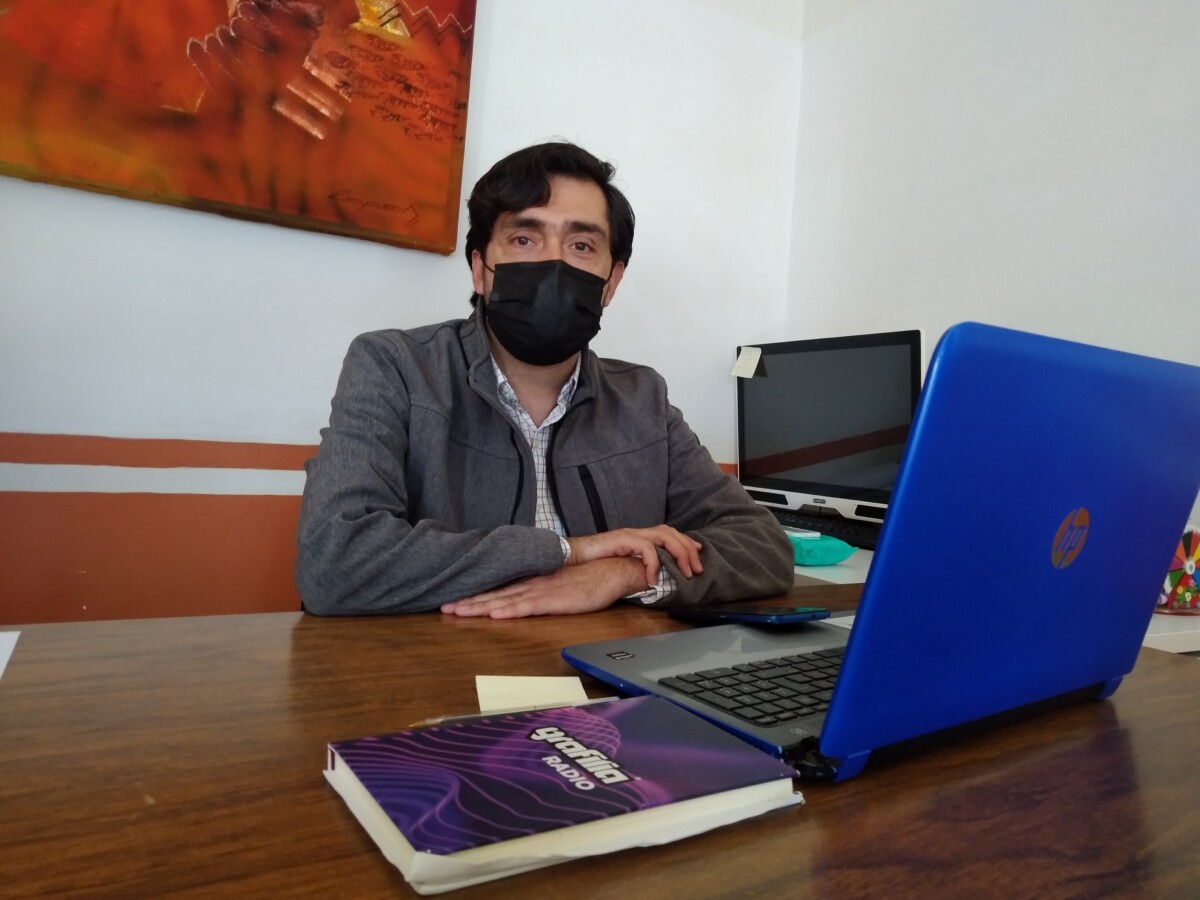
Sergio Unzueta, Culture Director in the municipal capital and the rest of the towns.
“The commitment was for 100 days, and those who know me know that I did it under protest,” said Baeza, who said he was surprised to realize that the Directorate of Culture was going to be divided in two during the current administration (2021-2024).
Because of this, Santiago analyzed from the beginning the viability of the situation. For him, beyond collecting a salary, the institution is more important than the people, so he opted to resign from his post.
“What was worked on during these three months has to be maintained,” Baeza said. “I am going to do it. I don’t need to be appointed to be able to give of myself to promote culture.”
He said the three months were very interesting from his personal perspective, and he asked that the cultural communication groups he formed in the municipality be maintained for the coordination of creatively gifted residents.
The former cultural official plans to summon the artists of the towns to make a project proposal to the Municipal Government with a totally civic aspect.
“Cultural promotion is of the community and we are all part of it, as a kind of network,” Baeza said, continuing to work with the Municipal Government as a citizen because, “We need them, but the government also needs us.”
Sergio Unzueta, in charge of the Directorate of Culture in th Chapala and the delegations, said, “We are still here and we are working,” during a talk with Laguna,in the Centro Cultural Antigua Presidencia (CCAP), in the municipal capital.
Translated by Mike Rogers
En Jalisco se aplicaron más de 346 mil vacunas contra COVID-19 en la segunda semana de 2022
Esta semana comenzará la inmunización de refuerzo para el grupo de 50 años y más. En la foto: Personal de salud aplicando la vacuna.
Comunicado de prensa (Jalisco).- Durante la segunda semana del 2022, en Jalisco se logró la aplicación de 346 mil 126 vacunas contra COVID-19, avanzando sustancialmente en la protección de adultos mayores y personal educativo que recibieron su dosis de refuerzo: se suministró la tercera vacuna (para el grupo de 60 años y más) y segunda dosis para quienes habían sido inmunizados con la unidosis de Cansino en su esquema original.
Estas vacunas fueron suministradas en tres macromódulos habilitados en el Área Metropolitana de Guadalajara (AMG): en el Auditorio Benito Juárez en Zapopan, en el Centro Administrativo Tlajomulco (CAT) y en el Centro Universitario de Ciencias Exactas e Ingenierías (CUCEI) de la Universidad de Guadalajara; así como en los diversos puntos de vacunación que se abrieron en las principales cabeceras municipales para cubrir todo el territorio estatal.
Del lunes 10 al sábado 15 de enero (semana epidemiológica 2 del 2022) fueron aplicadas 136 mil 080 dosis de la farmacéutica AstraZeneca; 123 mil 091 dosis producidas por el laboratorio Moderna, 86 mil 927 de laboratorios Pfizer-BioNTech y 28 de Sinovac.
El domingo 15 de enero concluyó la aplicación del refuerzo para el personal del sector educativo logrando cubrir al 100 por ciento de las y los trabajadores que se registraron en la plataforma (se abrirá una próxima jornada para quienes por alguna razón no pudieron acudir a esta convocatoria). Por lo pronto, esta semana se estarán aplicando refuerzos a personas de 50 años y más (incluirá a población de la tercera edad); segundas dosis a mayores de 18 años: de AstraZeneca (primera aplicada antes del 22 de noviembre), de Moderna (primera aplicada antes del 20 de diciembre) y de Sinovac (primera aplicada antes del 20 de diciembre); así como primeras dosis a adolescentes de 14 a 17 años y a adultos rezagados.
Para conocer detalles de las jornadas activas y apertura de nuevas convocatorias para jornadas de vacunación contra COVID-19 se recomienda estar atentos a los canales oficiales de la Secretaría de Salud y Gobierno del Estado o consultar la página https://coronavirus.jalisco.gob.mx.
Cabe destacar que la pandemia se mantiene activa y con tendencia al incremento de contagios por lo cual la Secretaría de Salud Jalisco (SSJ) invita a reforzar las medidas de prevención:
- Usar cubrebocasadecuadamente en espacios cerrados.
- Lavarse frecuentemente las manoscon agua y jabón o usar gel alcohol al 70 por ciento.
- Evitar espacios cerrados aglomerados y lugares queincumplan las medidas de prevención.
- En caso de presentar síntomas como tos persistente, dificultad respiratoria, fiebre que no cede o la oxigenación en sangre disminuye a menos de 92 debe acudir a una unidad de urgenciasy no esperar una prueba confirmatoria de COVID-19.
A personas con síntomas respiratorios se les pide mantenerse aisladas y reforzar el uso de cubrebocas en tanto acceden a una prueba de detección. Si resulta positivo mantener el aislamiento diez días o hasta no tener síntomas o siete días de ser asintomáticos.
ACUMULADO CASOS SEMANAL
A la semana epidemiológica número 2 del año (del 9 al 15 de enero de 2022), se han acumulado 425 mil 357 casos confirmados de COVID-19 (16 mil 011 contagios nuevos). En este periodo se acumulan 17 mil 711 defunciones (47 durante el periodo citado).
| RADAR JALISCO
CASOS DE COVID-19* |
||
| Casos | Semana 2 | Acumulados** |
| Casos confirmados*** | 16,011 | 425,357 |
| Casos descartados | 33,395 | 1,735,142 |
| Defunciones*** | 47 | 17,711*** |
Fuente: Secretaría de Salud Jalisco
*Corte semana epidemiológica 2 (del 09 al 15 de enero de 2022).
**Incluye información de los laboratorios del SISVER, HCGFAA, HCGJIM, UdeG, laboratorios privados y pruebas rápidas.
***Se incluyen casos confirmados y defunciones por asociación y dictaminación clínico-epidemiológica.
| AVANCE DE VACUNACIÓN EN JALISCO
SEMANA EPIDEMIOLÓGICA 2* |
|||||
|
ASTRA ZENECA
|
MODERNA
|
PFIZER – BIONTECH
|
SINOVAC
|
CASINO |
TOTAL |
| 136,080 | 123,091
|
86,927 | 28 | 0 | 346 mil 126 |
Fuente: Secretaría de Salud Jalisco
Chapala Fire Department assists in 298 incidents during holiday period
One of the most important emergency trucks in the vehicle fleet of Chapala Fire Department and Civil Protection. Photo: File, Semanario Laguna.
Jazmín Stengel / D. Arturo Ortega – The Chapala Fire and Civil Protection Unit, or UPCB, worked 298 incidents during Operation Joy in Chapala, carried out between December 15 and January 6.
During this period, the Highway Department and the Chapala UPCB reported 27 accidents, three of which were rollovers, another three involved motorcycles and one was a driver pinned in his car. The remaining 20 were “regular” cases, according to the report.
Also reported were 33 pre-hospital care and four emergency transfers outside the municipality, in addition to the care of three deceased persons and four rescues, of which one was a water rescue. There were also 18 fires, seven of which resulted in material losses, according to the Chapala Fire Department report.
The amount of illegal pyrotechnics in the municipality has also decreased. In the first nine days of the operation, the UPCB reported seizing 14 kg of pyrotechnics, while in previous years they seized as much as 80 kilograms (2018-2019), as reported by Semanario Laguna in its January 6 edition.
The UPCB reported only three pyrotechnics seizures during the holiday season that extends from the December 12 fiesta de la Virgen de Guadalupe through the January 6 day of the Three Kings. Weyler Samuel Ruíz, in charge of the unit, said they added up to at most 250 grams of gunpowder. This is because the neutral material, such as paper and wood, is not included in the weight because the only illegal substance is the gunpowder, “and this is usually very little,” said Ruíz, referring to the amount contained in each rocket.
On the other hand, two businesses were reprimanded during the operation’s holidays, both for being open too late and allowing loud music over the decibel limit. Both businesses are in Ajijic and belong to the bar-cantina business.
Translated by Mike Rogers
Couple charged in death of a child
Sofía G., mother of the child, and her partner, Marcos Alberto G., were under the influence of narcotics at the time of the crime.
The mother of a 14-month boy and her partner have been charged with parricide, which is murder of a close relative, and aggravated homicide in the boy’s recent death.
The investigation by the Regional Prosecutor’s Office assigned to Chapala found that on December 31, Sofia G., the boy’s mother, and her partner, Marcos Alberto G., were under the influence of narcotics in a home on Hidalgo street in Chapala’s Atotonilquillo neighborhood. The investigation revealed that the child began to cry because he was hungry. The accused hit the child repeatedly and threw him onto the floor. He sustained a skull fracture that caused his death.
When the prosecutor’s office learned of the child’s death, an investigation began that led to a judge approving an arrest warrant against the couple. After evidence was gathered, the mother and her partner went before the judge, who decided to commit them to trial for the crime of parricide and ordered them to serve one year of official preventive detention as a precautionary measure.
Translated by Mike Rogers
OPINIÓN: FACETAS DE MÉXICO
Esta sería la boleta para la revocación de mandato
Por: Pascacio Taboada Cortina/ Jorge Martínez Cedillo
La consulta al pueblo mexicano para decidir si se aplica al presidente de México, Andrés Manuel López Obrador, la “revocación de mandato”, a mitad de su periodo de Gobierno, es una verdadera sorpresa para los ciudadanos nacionales y extranjeros, quienes no encuentran respuesta a esta iniciativa del propio presidente, aunque para ello el Congreso haya tenido que modificar la Constitución.
En otro ámbito, podría calificarse como una ‘necedad’ que el pueblo le retire la confianza y, al mismo tiempo, vote masivamente por él, para levantarse de sus cenizas con renovados bríos, convencido de que “el pueblo exige que continúe”.
Para que esta propuesta se haga efectiva, los legisladores de la Cámara de Diputados tuvieron que hacer modificaciones a la Ley respectiva en el marco de la Constitución Política de los Estados Unidos Mexicanos, en el tiempo y forma que les ordenó el presidente.
La modalidad de ‘revocación de mandato’ en México es algo raro y a lo que los mexicanos no estamos acostumbrados. Normalmente se elige a un candidato, sea el presidente, los gobernadores, diputados, senadores y presidentes municipales por un periodo determinado. Al término del mismo, se elige a otro candidato y el que termina se va a su casa.
Pero jamás, que se recuerde en nuestro país, ningún funcionario electo ha sido sometido a “revocación de mandato”, al menos que, en el caso de López Obrador, se tenga una sorpresa como ocurre en varios países latinoamericanos, de que el mandatario en turno se atreva a “dar pinochetazo” y esa revocación se convierta en una conjura para eternizarse en el poder.
Allí tenemos ejemplos presentes y del pasado reciente, como sucedió con Chávez y Maduro en Venezuela, Evo Morales en Bolivia o la dupla que forman el ex guerrillero Daniel Ortega y su esposa Rosario Murillo en Nicaragua; algunos aún recuerdan a Fulgencio Batista y Fidel Castro en Cuba, donde sus sucesores aprendieron bien la cultura dictatorial, como son los casos de Raúl Castro y el actual Miguel Díaz Canel.
El Congreso mexicano aprobó modificaciones a la Ley respectiva para favorecer un esquema jurídico acorde con la revocación de mandato, –no de “reafirmación de mandato” (allí está la trampita)—como se publicita en carteles y sitios donde se recaban firmas de apoyo a la revocación.
La Ley modificada, dice: “Esta Ley tiene por objeto regular y garantizar el ejercicio del derecho político de las ciudadanas y ciudadanos, a solicitar, participar, ser consultados y votar respecto a la revocación de mandato de la persona que resultó electa popularmente, como titular de la Presidencia de la República (para un periodo de seis años), mediante sufragio universal libre, secreto, directo, personal e intransferible”.
Artículo 1. La presente Ley es reglamentaria de la fracción IX del artículo 35 de la Constitución Política de los Estados Unidos Mexicanos, en materia de revocación de mandato del titular de la Presidencia de la República.
Artículo 2. Esta Ley es de orden público y de observancia en el ámbito federal en todo el territorio nacional. Tiene por objeto regular y garantizar el ejercicio del derecho político de las ciudadanas y los ciudadanos a solicitar, participar, ser consultados y votar respecto a la revocación del mandato de la persona que resultó electa popularmente como titular de la Presidencia de la República, mediante sufragio universal, libre, secreto, directo, personal e intransferible.
Artículo 3. La interpretación de esta Ley se hará conforme a los criterios gramatical, sistemático y funcional, atendiendo a lo dispuesto en el último párrafo del artículo 14 de la Constitución. A falta de disposición expresa en esta Ley, se atenderá a lo dispuesto, en lo conducente, en la Ley General.
Artículo 4. La aplicación de las disposiciones previstas en esta Ley corresponde al Congreso de la Unión, al Instituto Nacional Electoral y al Tribunal Electoral del Poder Judicial de la Federación, en sus respectivos ámbitos de competencia.
El Instituto tendrá a su cargo, en forma directa, la organización, desarrollo y cómputo de la votación, incluyendo los Consejos y juntas ejecutivas locales y distritales que correspondan.
Artículo 5. El proceso de revocación de mandato es el instrumento de participación solicitado por la ciudadanía para determinar la conclusión anticipada en el desempeño del cargo de la persona titular de la Presidencia de la República, a partir de la pérdida de la confianza. (Así lo afirma la Ley)
En ese tremendo proceso de convencimiento de la necesidad de abrir un proceso de revocación de mandato para el presidente de México, se ha involucrado a la propia Presidencia, al Congreso Mexicano, a la Suprema Corte de Justicia de la Nación, al Tribunal Federal Electoral y, de manera principal, al Instituto Nacional Electoral.
A este respecto, López Obrador ha insistido en su negativa de dar los recursos fiscales suficientes al INE, para llevar a cabo dicha consulta; llegó al grado de proponer que ese referéndum lo realizarán los ciudadanos comunes, que él llama el pueblo, sin pensar ni reflexionar en que, si se trata de un proceso que requiere toda la colaboración y la seriedad institucional, deben realizarlo las instituciones creadas ex profeso tanto en el arbitraje electoral, como en las que tienen la responsabilidad de dar validez a los procesos electorales.
Desaparece más de millón y medio de pesos de SIMAPA Chapala
La Contraloría Municipal denunció la falta de 1.6 millones de pesos a la Auditoría Superior del Estado de Jalisco. Foto: Archivo.
Redacción. – Más de millón y medio de pesos (1.6 mdp) fue lo que el director del Sistema Municipal de Agua Potable y Alcantarillado (SIMAPA), Fernando Antonio Monreal Mendoza reportó como faltante ante la Contraloría Interna del Ayuntamiento de Chapala.
La observación se realizó en el oficio 002/NOV21 en el que se solicita a la Contraloría del Ayuntamiento una investigación respecto a esta y otras anomalías detectadas en el proceso de entrega y recepción.
La Contraloría Municipal denunció la falta de 1.6 millones de pesos a la Auditoría Superior del Estado de Jalisco, así como al Congreso Local; debido a que, del primero de enero al 21 de septiembre del 2021, el organismo público habría recaudado 49.6 millones de pesos, más 2.1 millones con los que contaba al inicio del ejercicio fiscal de ese año, sumando 51.7 millones.
El encargado de la Contraloría de Chapala, Absalón García Ochoa, estima que el recurso pudiera encontrarse distribuido en bancos, efectivo, documentos por cobrar préstamos u otros, pero los formatos de entrega a recepción fueron entregados en ceros, por lo que en base ello, es que solicitó se investigue.
A las irregularidades de la administración 2018 -2021 de SIMAPA, entonces dirigida por Alfredo Ramiro Arana Hernández, se agrega la falta de expedientes del personal que labora en SIMAPA, así como el saldo de las cuentas relacionadas a los bancos HSBC, BBVA y Santander, o las conciliaciones con los mismos por mencionar.
© 2016. Todos los derechos reservados. Semanario de la Ribera de Chapala
